Research
Both the content and method of my scholarship are grounded in critical psychology, critical race theory, and feminist psychology. I particularly value theory development, qualitative methods, and critical analysis that connects individual lived experience to relational/group dynamics and sociostructural influences. My scholarship reflects my aim to move beyond decontextualized understandings of race, gender, and other statuses to actively challenge the explicit or implicit acceptance of oppression. Simultaneously, my research is rooted within clinical psychology’s emphasis on healing, empowerment, promoting health and well being, and fostering authentic and loving relationships with others as well as with oneself.
Liberation and Resistance against Oppression: Processes and Interventions
My work in this area addresses how individuals and communities work to liberate themselves and others through individual actions as well as community interventions, community engagement, and education as liberatory intervention. Foci include how people of color cope and resist the detrimental effects of oppression on mental health, promoting solidarity, how challenging oppression affects well being, and how and why people in privileged positions challenge privilege and hierarchy.
Education and Training for Social Justice
My work in this area provides guidance for psychologists, researchers, educators, and therapists to promote racial justice. I understand education for conscientization as a psychological change process taking place within social and group contexts, where psychological theory and research can be applied to increase effectiveness. In research, I particularly focus on the ways that race and ethnicity are operationalized or ignored. See also Teaching Diversity Relationally, Unraveling Assumptions, and Conceptualization and Treatment Planning for Effective Intervention in the Books section below.
Asian Americans’ Racial Identity and Effects of Racism
Meanings of Race and Racism
My work in this area examines the complexity of race and racism, challenges the idea of race as simple categorization and explores the inherent connections of race to the creation and maintenance of oppression and privilege, including dynamics of “divide and conquer,” pitting racial minorities against other racial minorities. See also Unraveling Assumptions in the Books section above.
Current Projects
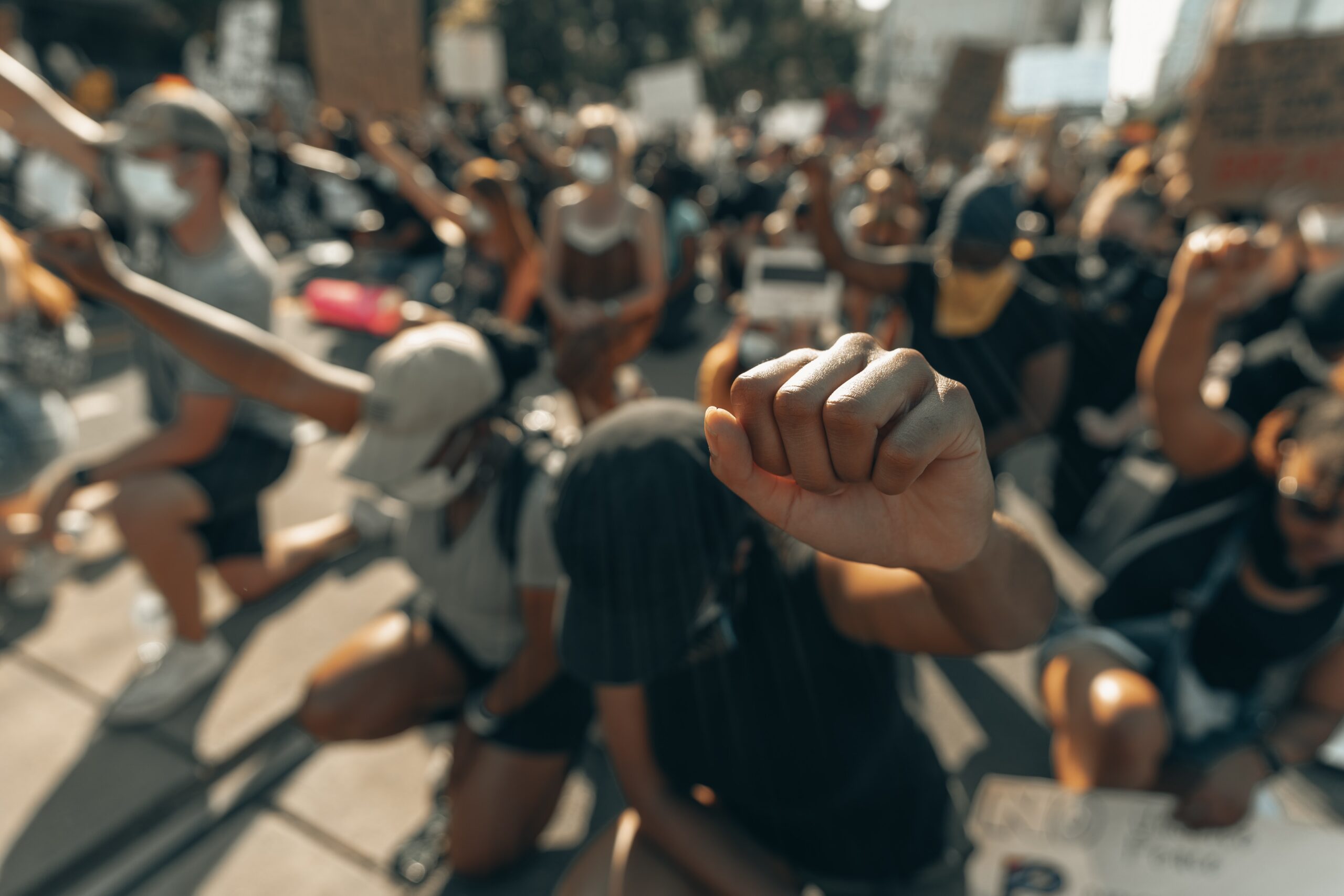
Photo by Clay Banks on Unsplash.
Resistance, Healing, and Solidarity
I am working on the following projects with my research team, find out more about at our site: Asian American SEEDS (Solidarity, Empowerment, Education, Dialogue, Study):
Resistance and Empowerment Against Racism (REAR): With Tahirah Abdullah and her team, we are examining the nature and effects of resisting and challenging racism for people of color.
Visioning Just and Authentic Relationships: A qualitative study exploring possible alternatives to current polarized and oppressive relationships.
Solidarity with Palestinians: A qualitative study examining how non-Palestinian Americans come to conscientization and action for Palestine justice
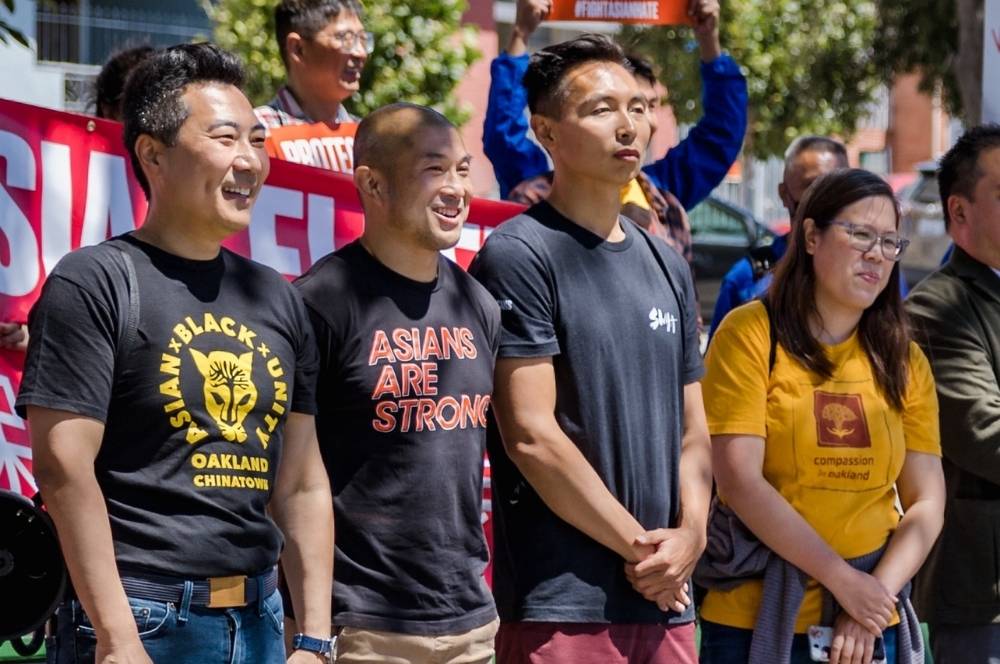
Photo by Jason Leung on Unsplash.
Foundations of Asian American Psychology
A book project in collaboration with a group of feminist Asian American scholars, focusing on an overview of foundational topics in Asian American psychology through a critical theory lens. We are attempting to build a different kind of collaborative process that reflects the liberatory values and critical consciousness in which we seek to ground the product.
Books
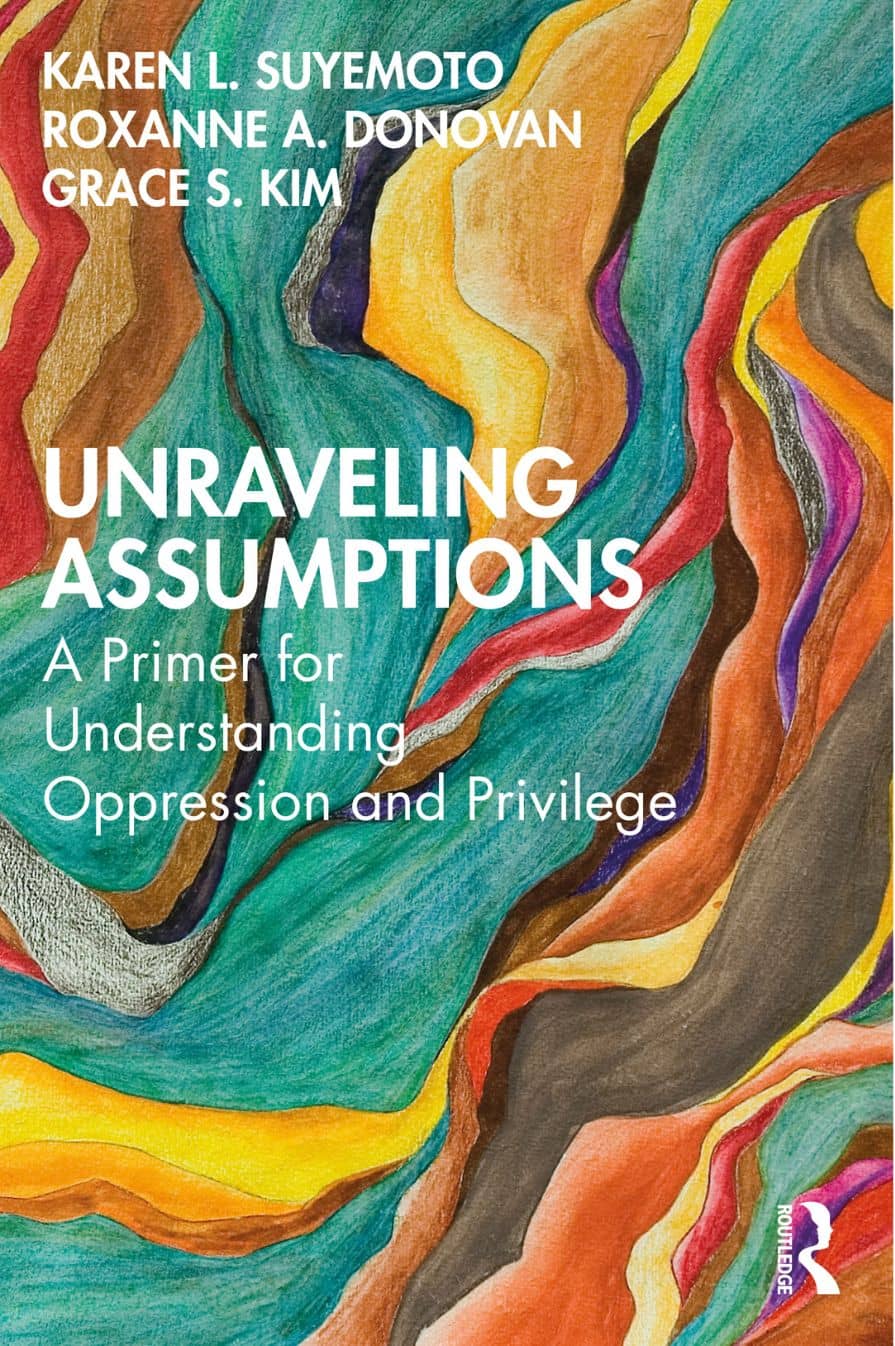
Unraveling Assumptions
“Our intention in writing this book is to open possibilities. We are inviting
you to consider the possibility that you may have assumptions that you haven’t yet critically examined. Most people do. We seek to explore these assumptions, where they come from, and why they matter.” (Chapter 1)
Offers fundamental understandings of concepts and frameworks related to diversity and social justice. While considering why it is so difficult to engage these issues, the text offers an introductory exploration of power, privilege, and oppression as foundations of systems of inequality and examines complexities within meanings and lived experiences of race, ethnicity, gender, sexuality, disability, and social class. Offers guidance on respectful language and considers complexities, including changing meanings and movements. Invites readers to explore themselves and engage the perspectives of those with different positionalities.
Teaching Diversity Relationally
Offers process-oriented guidance for negotiating the psychological and relational challenges inherent in teaching about race, privilege, and oppression.
Grounded in the philosophy of Transformative Education, the authors examine the experience and function of resistance and develop five emotional-relational pillars of successful teaching: cultivating reflexivity and exploration of positionality; engaging emotions; fostering perspective taking and empathy; promoting community and relational learning; and encouraging agency and responsibility. Subsequent chapters explore students’ response as the course moves into deeper content material and more intense discussions, describing the psychology behind these responses, and offering strategies to facilitate learning, manage class dynamics, build connections among students, and prevent faculty burnout.
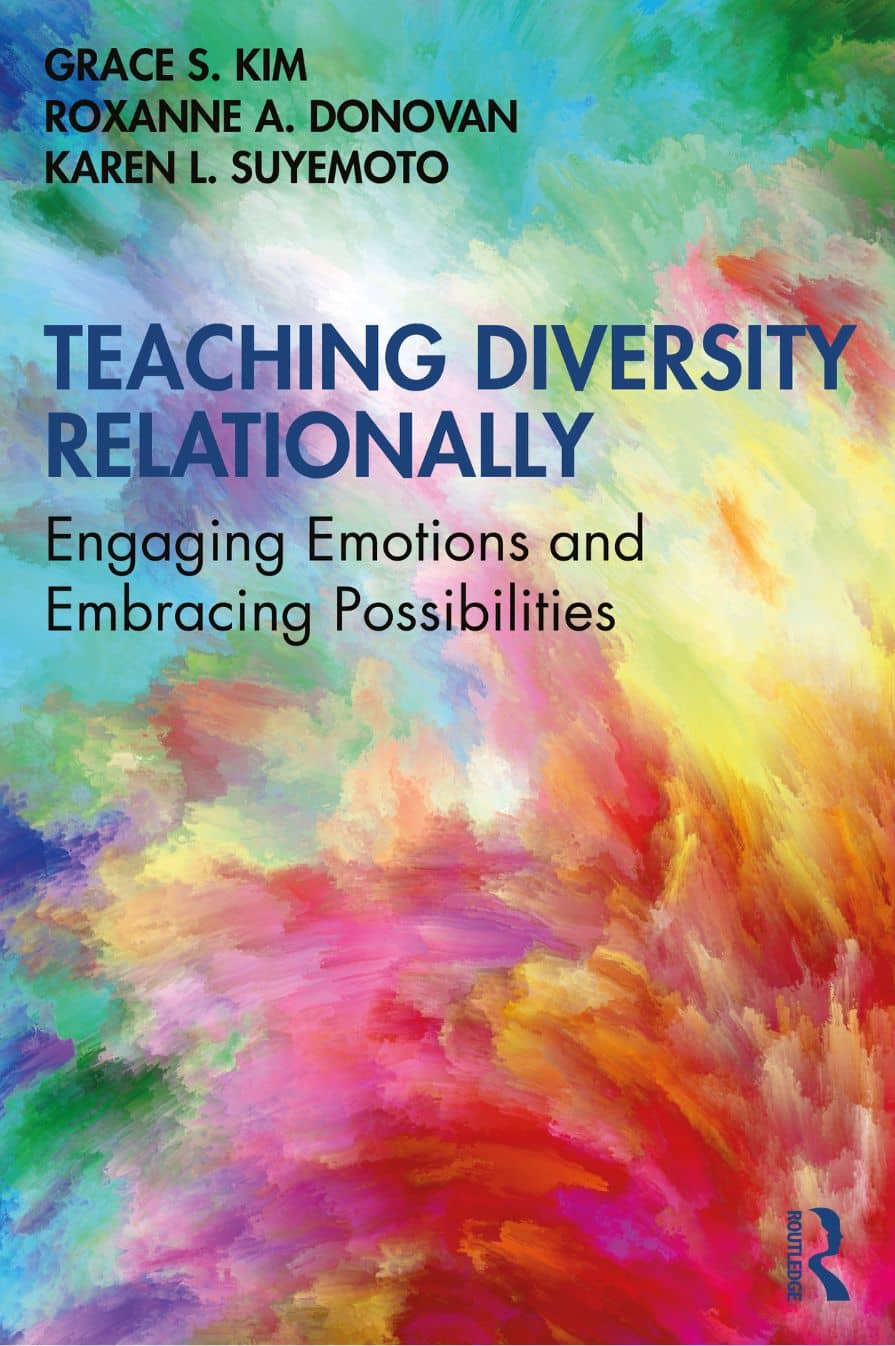
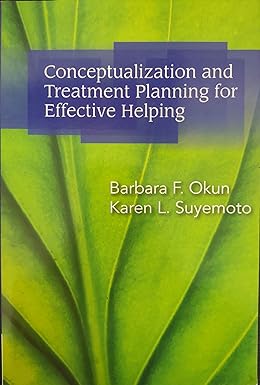
Conceptualization and Treatment Planning
Provides structure and process for fostering students’ ability to integrate the many pieces of the helping process into a conceptualization that will foster efficacy in creating positive change. Addresses integration of theoretical orientation, the person of the therapist, the person of the client, the contexts that affect the clients, the therapy relationship, the context of the therapy, and the skills and resources available for change.
Psychotherapy with Women
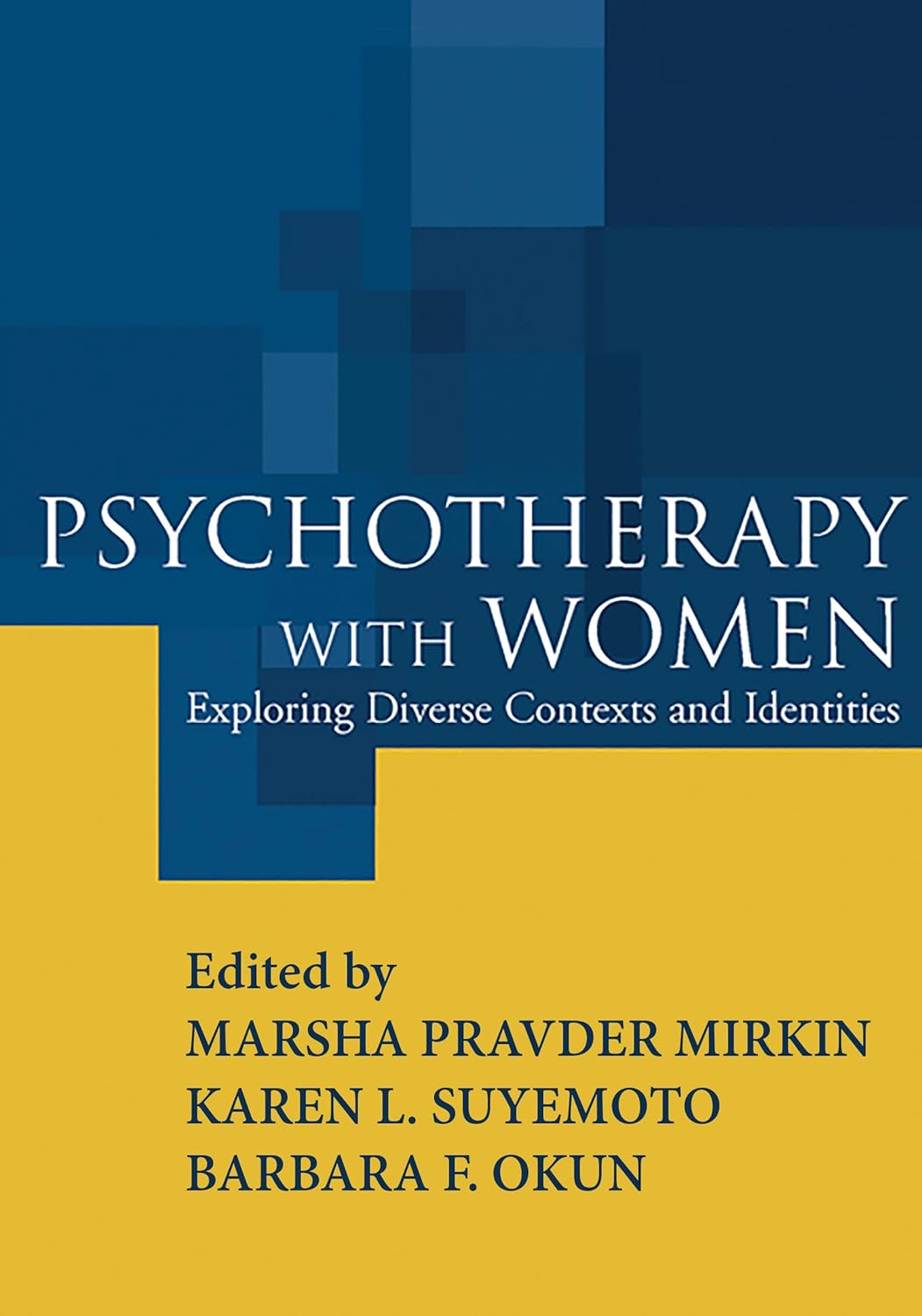
Collaborators
Grace S. Kim: Dr. Kim is a clinical associate professor in the Counseling Psychology & Applied Human Development Department at Boston University Wheelock College of Education & Human Development. Dr. Kim’s work focuses on transformative education to advance racial justice and anti-racist resistance, healing, and solidarity as Asian Americans. She is an incredible scholar, teacher, and leader from whom I have learned so much.
Tahirah Abdullah: Dr. Abdullah is an Associate Professor in Psychology at the University of Massachusetts, Boston. Dr. Abdullah’s work focuses on promoting health, well-being, and liberation for Black individuals and communities. We have collaborated on research projects focused on cross-racial resistance, resisting oppression teach-ins, curriculum development, and advancing the activist mission in the UMass Boston clinical doctoral program, among many other things. Her dedication to addressing anti-Blackness while recognizing the complexities of anti-racism writ large are an inspiration and model for me. Check out more about her research and research team at the Black Mental Health Advocacy and Research Lab and about her consulting work at Bare Mental Health and Advocacy.
Roxanne Donovan: Dr. Donovan is Professor of Psychology at Kennesaw State University, jointly appointed in the departments of Psychological Science and Interdisciplinary Studies. Her scholarship focuses on promoting well being for women and people of color in the face of oppression. Her focus on agency, positive change, and emotional connection offer grounding , hope, and authentic connections for me and so many other faculty of color. With Lizabeth Roemer, she has been an inspiration and an accountability partner for me, fostering growth and reaching for justice and connection, even when that seems incredibly difficult. Check out her amazing supports for faculty women of color at Well Academic.
Lizabeth Roemer: Dr Roemer is Professor of Psychology at the University of Massachusetts, Boston. Her work focuses on mindfulness and acceptance, moving beyond an individual focus to consider structural contexts of oppression and privilege to address how mindfulness interventions need to change to be more responsive and how these interventions can promote well being for people of color and support resistance to racism. For me, Dr. Roemer is the embodied reminder that White allies who take action are truly possible and differentially effective in promoting racial justice, and that authentic human relations across differences in privilege and oppression have unique rewards. I have also learned so much from her that helps advance my own well-being and keeps me grounded in my central values. Check out her research and research team and her blog, Mindfully Doing What Matters.
Sayaka Osanami Törngren: Sayaka Osanami Törngren is Associate Professor in International Migration and Ethnic Relations at Malmö University, Malmö Sweden. Her work is breaking new ground in Sweden, examining questions related to race and racialization, racism and discrimination, and inequality and intervention, rejecting a simplistic ethnicity-only focus that promotes colorblind racial attitudes associated with inequities. My connections with Dr. Osanami Törngren have expanded my global perspectives, and deepened my understandings of context. I have also benefited and learned from her exceptional skills in bringing people together for collaboration and intellectual growth.
The Asian American Feminist Collaborative: My colleagues and I in the Asian American Feminist Collaborative are working to develop a different way of working together, grounded in liberatory values and developing authentic relationships. In addition to Grace S. Kim (above), collaborators include Sapna Chopra, June Kim, Nadine Nakamura, Yuying Tsong, and Gloria Wong-Padoongpatt.